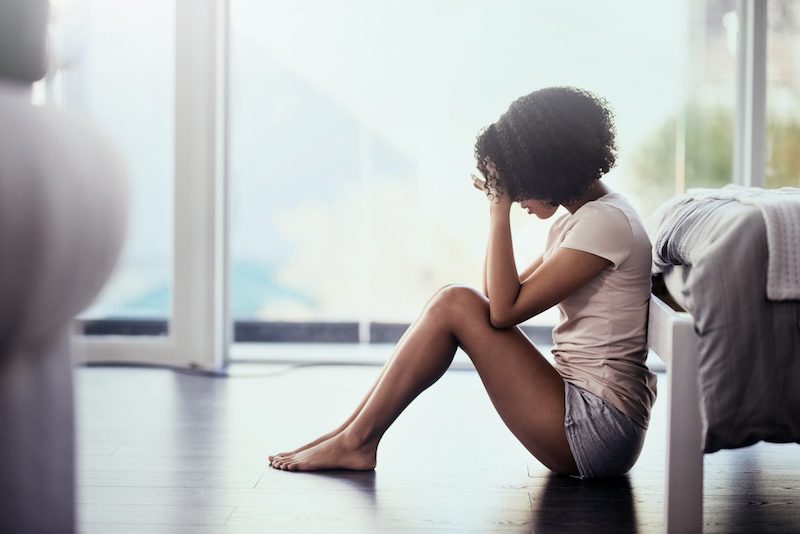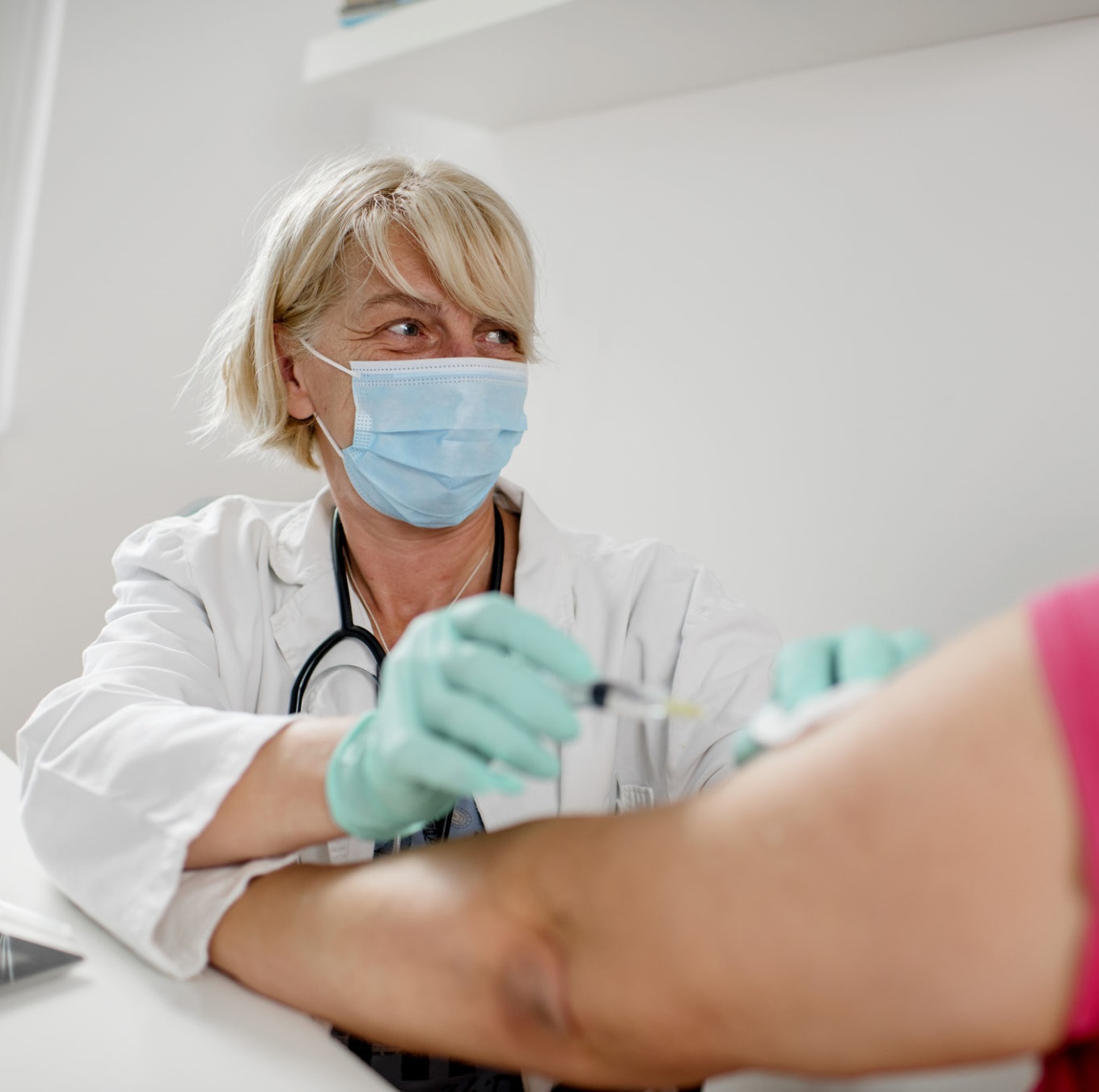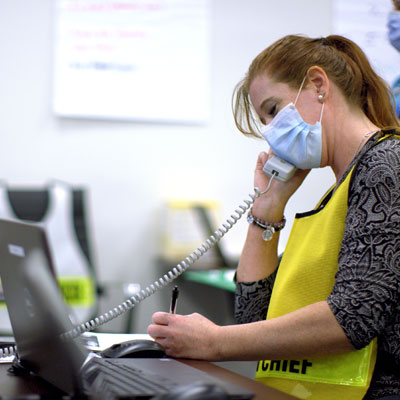How to Overcome Pandemic Guilt

May 19, 2020
By Larry Ginsberg
The coronavirus pandemic has stirred a variety of emotions and feelings within everyone. Frustration, sadness, anxiety and stress are just a few. For some, feelings of guilt may also be experienced.
You may have feelings of guilt because so many people are unemployed or struggling with food needs, yet you still have a job and can provide for your family. You might be feeling guilty because your children can’t see friends and grandparents or participate in normal activities. Or that someone you care about has been ill with COVID-19, while you are healthy. There are also those that feel guilt because a loved one has died, and they couldn’t be there to say goodbye.
Different Kinds of Guilt
Guilt is normal, particularly when you feel spared pain or loss that others are going through. During the COVID-19 pandemic, people may be affected by feelings of guilt in different ways.
According to Ram Mahato, M.D., medical director for the Center for Behavioral Health at Hackensack Meridian JFK Medical Center, “There are many types of guilt people may feel because of the pandemic. Some are normal and can be managed through coping techniques, and others may be prolonged and require medical attention if they get in the way of daily functioning.”
Different types of guilt may be overlapping, but can be categorized into three basic kinds of guilt:
- Natural guilt – a normal reaction and feeling of remorse over something we did or failed to do. This form of guilt passes quickly and could result from something as small as forgetting someone’s birthday and feeling bad for a short period.
- Free-floating, or toxic guilt – this form of guilt could come from a sense of not being a good person, feeling like a failure or that you let other people down. This form of guilt may be associated with depression, and if it persists for more than two weeks or impedes daily activities it would be time to seek care.
- Existential guilt – this is a negative feeling that may be associated with trauma and arise out of a perceived injustice in the world. A form of existential guilt would be survivor’s guilt and during the COVID-19 pandemic, it may affect people who survived the virus while others did not. This may affect health care workers on the front lines of providing care. This form of guilt may result in nightmares, insomnia, inability to function, social isolation, feelings of fear, emotional detachment, avoidance of usual activities, and could be a form of PTSD if it lasts more than four weeks. Treatment should be sought immediately if this persists for more than a few weeks.
Processing Your Feelings
Dr. Mahato adds, “I see many people struggling to process how they are feeling. Essential workers may feel guilty about possibly exposing themselves and others to the disease, carrying it home to the ones they care about most. Caregivers may feel guilty because they cannot be there (physically or emotionally) to provide care and support for people that depend on them. People are already under tremendous stress, and guilt can be an additional factor that impacts our resilience and mental health.”
Symptoms and How to Cope with Guilt
Guilt is often accompanied by symptoms related to anxiety, stress and depression, including:
- Changes in sleep or inability to sleep (insomnia)
- Changes in appetite – either lack of appetite or stress eating
- Lack of interest in activities you previously enjoyed
- Inability to concentrate or focus
- Fatigue and lack of energy
- Feeling disconnected and withdrawing from social interaction
Some tips for coping with feelings of guilt include:
- Be aware of how you are feeling. Many reactions are normal under current circumstances.
- Accept how you are feeling. It may be difficult to accept, but we have little control over much of what is happening around us right now.
- Share and express how you are feeling. Talk to family and friends. Even if it cannot be in person, connect by phone or a virtual visit on a smartphone or iPad.
- Take a break from the news. Allocate time away from the constant barrage coronavirus information. Try journaling, meditation, deep breathing exercises, or reading a book to relax.
- Maintain a healthy diet. Eating nutritious food can help counteract the impact of stress and guilt on your body.
- Stay active and exercise regularly. Keep your body moving and mind sharp, and make a point to get outside and spend time in the sun and fresh air.
If you are feeling guilt, understand that we are all wrestling with feelings due to loss of control and wondering what more we could or should be doing. If these feelings persist, don’t be afraid to seek care.
Next Steps & Resources:
Ram Mahato, M.D. is the medical director for the Center for Behavioral Health at Hackensack Meridian JFK Medical Center.
The material provided through HealthU is intended to be used as general information only and should not replace the advice of your physician. Always consult your physician for individual care.
Find a doctor near me
Can Isolation During a Pandemic Lead to Depression?

Can too much isolation lead to mental health issues?
Has COVID-19 Made You Addicted to Your Phone?
Reduce phone addiction. Learn tips to manage screen time & improve your well-being. Get support. Call 800-822-8905.
Find a doctor near me

Overcoming Quarantine Anxiety
If you are feeling anxious or burnt out from COVID-related stress and isolation, you aren’t alone.

Reduce Your Fear of Needles
A fear of needles can seem debilitating. Here are some tips to help overcome the phobia.

COVID Concerns? How to Decline Invitations but Maintain Good Relationships
As we get closer to the holidays and the weather gets colder, you may start to get invited to holiday parties or other indoor gatherings.

Adjusting to a Stressful COVID-19 World
Managing COVID-19 stress? Dr. Solhkhah offers advice and support for anxiety, depression, and substance use. Find help now.
